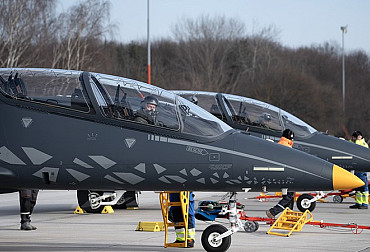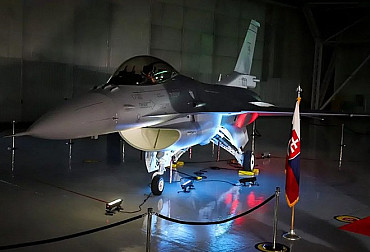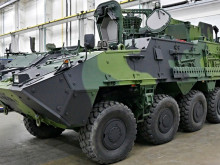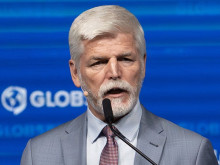Gen. Karel Řehka: In reality, the recruitment process is desperately slow and discouraging
The regular Command Assembly of the Chief of the General Staff of the Army of the Czech Republic took place today. The annual purpose of this meeting is to determine the priorities for the development of the Czech Army and outline the main tasks for the armed forces in the coming year. In addition to the Army Command, led by Chief of the General Staff General Karel Řehka, the meeting was attended by Minister of Defence Jana Černochová. President of the Republic Petr Pavel, currently on a business trip to Australia, also delivered a video address to the participants.
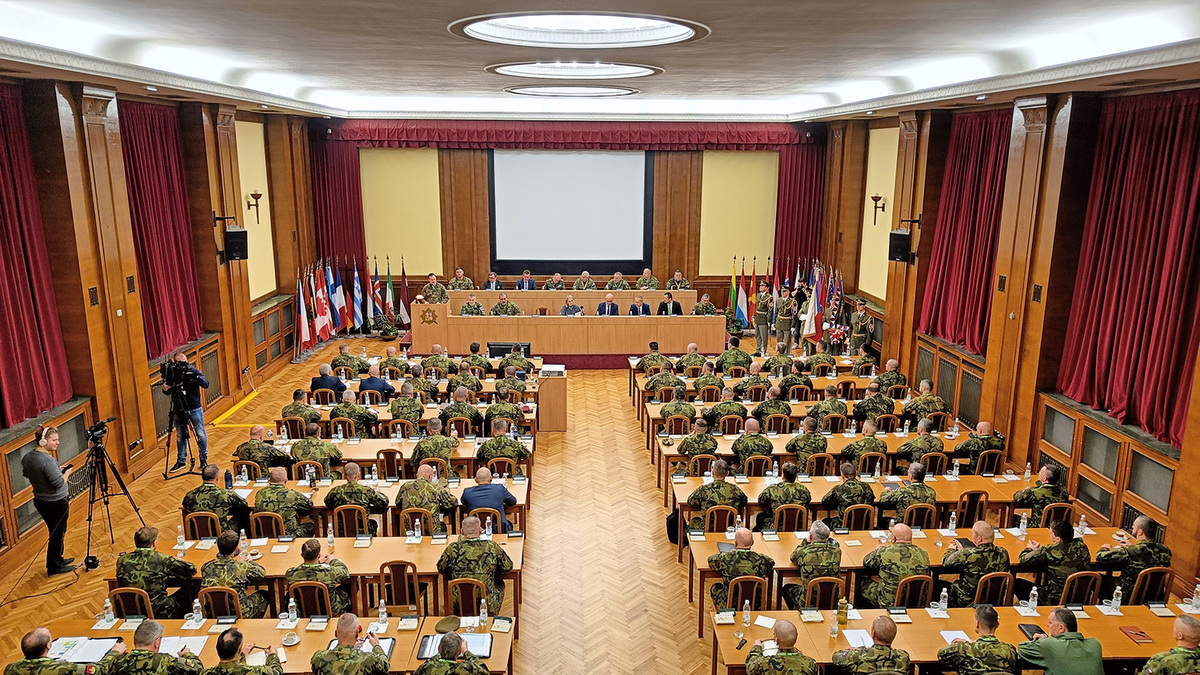
President Petr Pavel began his address by noting that the security situation has not improved since the last Commanders' Meeting. "The conflict in Ukraine has been ongoing for more than a thousand days. Russian aggression has not only caused extraordinary disruption to international relations but has also inflicted great suffering on Ukraine and triggered a wave of migration. Conflicts in the Middle East and the Sahel persist, while the situation in the South China Sea and around Taiwan remains complex. These conflicts risk spreading beyond their respective regions. From this perspective, defense is not an abstract concept," the President summarized.
According to President Pavel, the responsibility of individual NATO member states for their own defense and security is growing. "The Czech Republic must develop not only a capable, ready, and responsive army but also a resilient economy. Likewise, society itself must be prepared, as security is a fundamental condition for our development and stability," he emphasized. The President also remarked that the recent elections in the United States are likely to result in changes in policy—not only regarding Russia and the conflict in Ukraine but also toward NATO and the European Union. "From this perspective, it is even more critical to prioritize our own efforts to build capabilities, allocate sufficient resources to defense, and exceed the commitments we have made to our allies," President Pavel stated. He warned that without ensuring security, the Czech Republic cannot safeguard other aspects of societal well-being.
Chief of the General Staff of the Czech Army, General Karel Řehka, stressed in his speech that the time has come to take full responsibility for national defense. "No one else will do it for us—not our neighbors, nor our allies. If we want to live in security, we must take care of it ourselves," General Řehka asserted. He highlighted that NATO defense ministers will approve the new Capability Targets for 2025 next year. Preparing for these new collective defense commitments is a crucial task for the Czech Republic. "The changes will be truly revolutionary," he said. "The philosophy behind setting objectives has evolved across the Alliance. It now emphasizes direct responses to specific threats."
General Řehka pointed out that this is not merely about theoretical planning or meeting formal requirements but about real preparedness for tangible risks. "The threats we might face are already occurring daily in Ukraine, such as Russian missile and drone attacks. NATO's response is clear: it is developing air defense systems across all ranges—short and long—and capabilities to counter not only traditional weapons but also new technologies like hypersonic missiles and drones," he explained.
The General also warned of Russia's increasingly aggressive policies toward Ukraine and the Western world. "Russia is escalating its offensive posture. It is forging alliances, including with Iran, receiving support from China, and even involving the North Korean military physically," he concluded.
General Řehka also addressed the ongoing conflicts in the Middle East and China's increasing influence on the global order. "The Alliance's new objectives align in many ways with our national priorities. For example, the already-mentioned air defense, logistics, support for deployable forces, and so on. We need to significantly rethink our development goals. The new objectives focus not just on the heavy brigade but on all combat units. We need not only more weapons but also more personnel. Preliminary estimates based on our analyses indicate the need for up to 37,500 soldiers, which is 7,500 more than the current limit set in the Czech Army development concept," the General explained, highlighting the army's current personnel challenges.
General Řehka emphasized the importance of maximizing efforts to not only maintain current personnel numbers but to increase them to meet requirements. "The entire recruitment process must align with this goal. According to official data, the Czech Armed Forces receive roughly 7,000 service applications annually, but only a small fraction of these candidates ultimately join the army. In reality, the recruitment process is slow and discouraging. We are barely offsetting departures with recruitment, as the number of people leaving the army continues to rise—and this year, we might not even break even," General Řehka warned.
To address this, the Chief of the General Staff has commissioned a draft action plan for recruitment and personnel stabilization, which includes a military recommendation outlining specific measures to be implemented at various levels over time. "The measures may need to be radical, but they are essential. Service in the army must be attractive and competitive in the labor market. If that means investing more in personnel at the expense of equipment modernization, so be it. We are heading toward a scenario where we will have new equipment but no one to operate it. The army is becoming uncompetitive in the labor market, and this is a truly strategic and urgent problem. For all of us, the main issue is combat capability," said Lieutenant General Karel Řehka, Chief of the General Staff of the Czech Armed Forces.
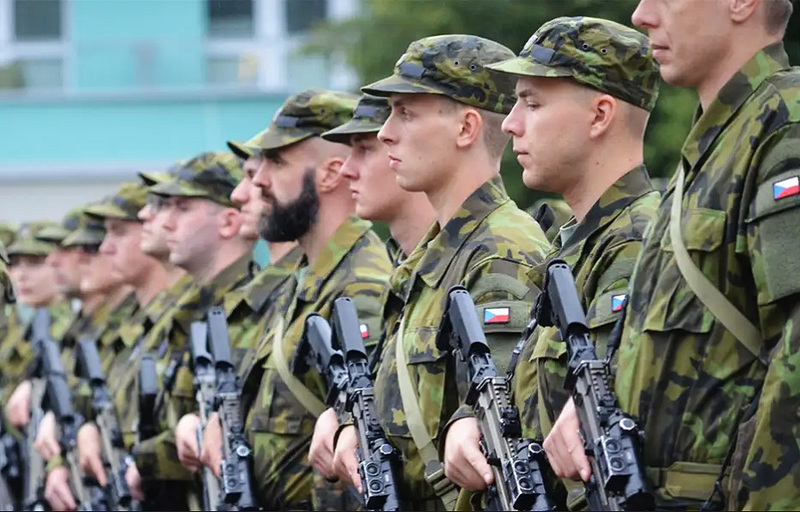
Defence Minister Jana Černochová told the commanders' assembly that the defense budget of 2% of GDP would not be sufficient. She clarified that 2% should be seen as a baseline rather than a maximum, noting that the new U.S. administration will closely monitor NATO members’ commitments. The Minister also pointed to the army's internal debt, which stands at approximately 618 billion crowns, and outlined necessary changes to make military service more appealing. Among the most critical is an amendment to Law 221 on professional soldiers, which aims to streamline recruitment and remove bureaucratic obstacles. The draft is currently under review and is expected to be discussed by the government soon. Both the Defence Minister and the Chief of the General Staff ruled out any changes to service benefits as part of the amendment.
At a subsequent press conference, General Řehka was asked about implementing the new NATO Capability Targets 2025 (CT 25) and how this would affect the Czech Armed Forces’ development plans and timelines. "I cannot provide full details as the targets have not yet been officially approved or announced, but to give you an idea, we’ve negotiated well within the Alliance. There’s a collective effort to concentrate capabilities into larger, functional units rather than fragmenting them. We've worked to ensure the objectives are relevant to our ongoing development efforts," General Řehka explained.
He added that much of the focus is on increasing air defense capability, including missile defense, as well as logistics enhancements. "Given our current manpower shortages, implementing these objectives will require at least a couple of new units, likely crew formations. Timelines are still under discussion, but some aspects will take years to achieve. Building new barracks and recruiting and training several hundred soldiers for these units will not be quick. If we aim to recruit 4,000 people annually, we must be prepared to accommodate them, regardless of the training capacity at Vyškov. We simply have to make it work," General Řehka said. He emphasized the need for legislative support and cooperation from the Ministry of Defence, the government, and Parliament.
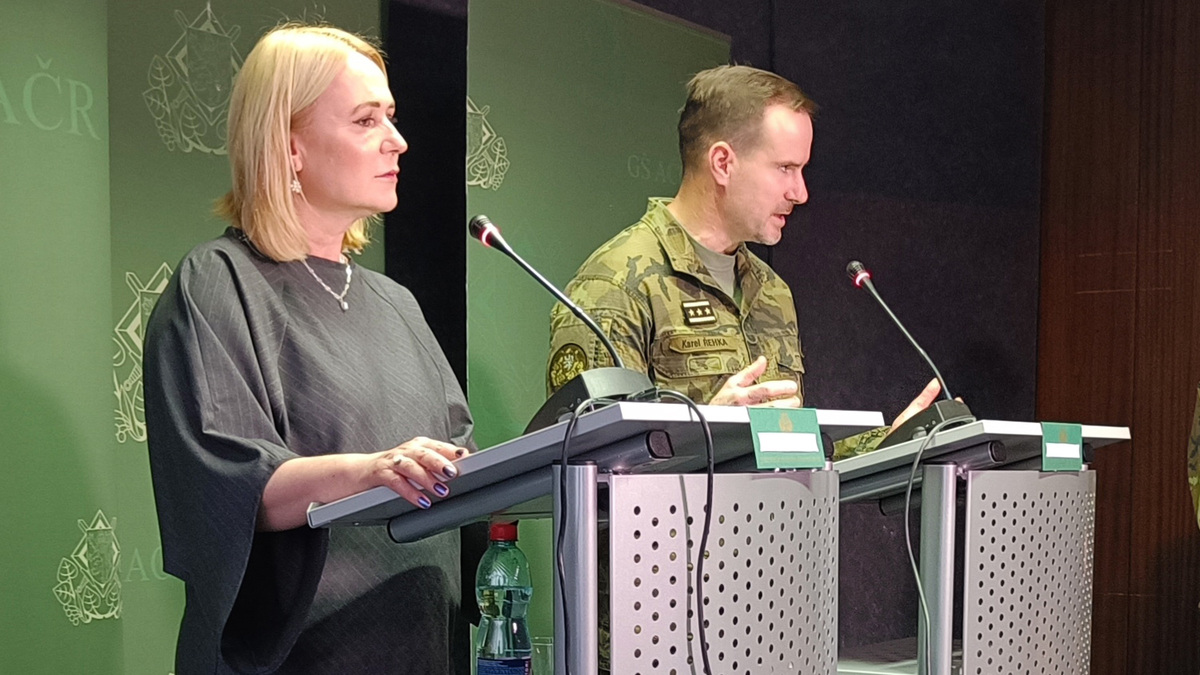
Defence Minister Jana Černochová subsequently commented for CZ DEFENCE on the topic of defense spending at 2% of GDP, emphasizing that it is now clear this amount is insufficient to meet the new Capability Targets and gradually repay the army’s internal debt. "Two percent is a floor, not a ceiling. Of course, we are mindful of the reality, particularly in light of the new U.S. administration, which has previously made quite strong statements about foreign countries adhering to the 2% GDP commitment. Therefore, it is certain that this expectation will remain. Whether it will be 3% or 3.5%, I don’t know at this point. There is speculation about 3%. We are prepared for that. I’m not sure, however, to what extent Czech society is ready, as even debates on the topic of 2% resonate within society to some degree.
Our primary need is time to prepare projects and ensure that these projects—and the funding allocated for them—are not subsequently changed or withdrawn. If a large part of the expenditures in this year’s and next year’s budgets comes from other ministries, it creates enormous problems for us. The Chief of the General Staff also addressed this issue at the Commanders' Assembly. We emphasize that the Alliance has a clear methodology for what it will and will not recognize as eligible budget items," Černochová stated.















